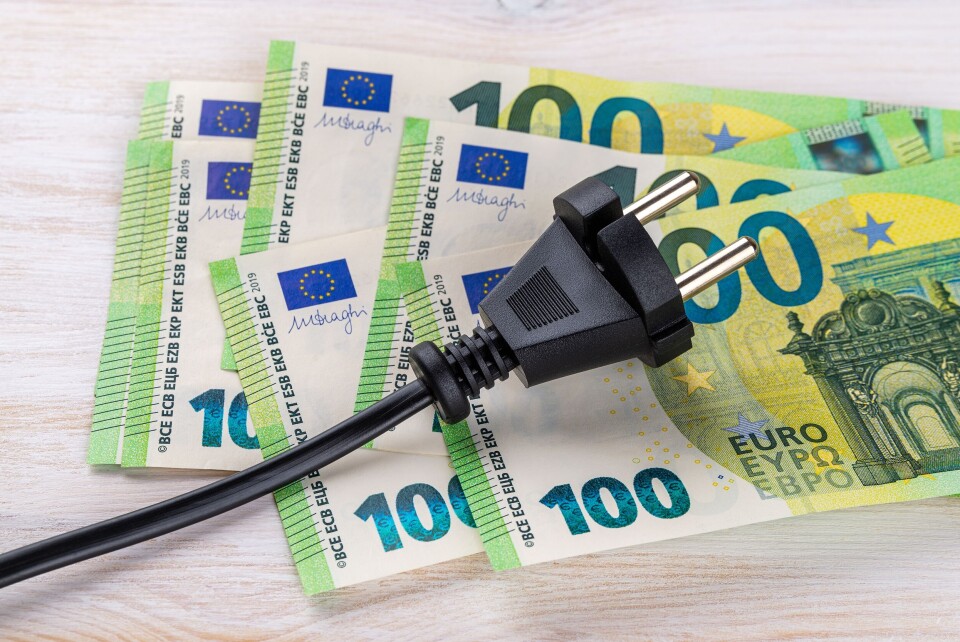-
Many parcel collection points in France are overwhelmed as Christmas approaches
Heavy customer traffic leaves some struggling to cope
-
Warnings issued over connecting to public WiFi networks in France
Lack of encryption and risk of connecting to ‘fake networks’ leave users at risk of hacking attempts
-
Provence’s santon makers seek geographical protection for historic craft
The small, hand-painted clay figurines are at the heart of traditional French Christmas nativity scenes
Five questions about the rise in electricity prices in France
Who is affected, why are prices rising, how much is the ‘price shield’ helping, how long will it last and how do prices compare with others in Europe?

More than 20 million households in France are facing higher electricity bills from this week after prices were capped at 15% (and not 4% as previously) from February 1. We answer five key questions.
Who is affected by this rise?
Around 77% of residential homes are affected. These are households that are signed up to a regulated electricity tariff (tarif réglementé de vente (TRV) as well as those whose contracts are indexed to the TRV.
Around 100,000 social housing blocks, which are heated collectively, are also affected.
Will prices rise even higher?
For now, this is unlikely. The price rise this year would have been much higher if it were not for the government’s ‘tariff shield’ (bouclier tarifaire)’ limiting the increase.
This was put in place in autumn 2021. Without it, prices would have increased by 99.22% (effectively double), figures from la Commission de régulation de l'énergie (CRE) show.
The 15% cap rise represents an extra cost of around €20 per month on average, instead of around €180 on average, without the price shield, the state’s service-public.fr website states.
For a family of four living in an 100m2 house heated with electricity, the rise will be €259 per year, or around €21.58 per month, show calculations from EDF. Without the shield, it could have been as much as €2,160 extra per year.
Read also: End of regulated gas prices in France – how to find the best deal
Why is electricity going up in price in the first place?
The issue is European-wide.
The CRE has said that the reasons include:
-
The Covid-19 pandemic
-
Effects of the war in Ukraine
-
Price fluctuations on the energy markets
-
Energy supply costs
-
The "anticipated low availability of the French nuclear fleet”. This was related to the majority of France’s nuclear power stations being closed for repairs or preventative upkeep at the end of last year.
Since the start of 2021, the restart of economic activity has caused energy costs to soar.
The Russian invasion of Ukraine worsened supply and demand issues in 2022, which stoked fears about gas supplies. Electricity prices are closely linked to gas prices, and gas costs much more at the moment due to the conflict in Ukraine.
And while France gets 70% of its energy from its own nuclear power plants and does not use much gas, it has not escaped the rise in the price of a kilowatt hour. It is still dependent on energy market prices, which are affected by electricity trading prices before it reaches the customer.
For the first time in almost 40 years, France has had to buy more electricity from its neighbours (Germany, the UK, and Spain) than it has been able to make itself. These sources include nuclear power, renewable energy, and fossil fuels. This has also pushed the price up.
Economy Minister Bruno Le Maire has judged the market as “abhorrent” and “obsolete”, and said that “it does not work”.
Read also: Electricity prices are rising in France: How much more will you pay?
How long are the prices set to remain high?
Prices are set to remain at this level until at least the end of 2023. This is partly because electricity is bought partly in advance, at the current prices. The absence of Russian gas will also have an effect.
Consumer association CLCV has called on President Macron for the tariff shield to remain in place “for two years to weather the storm”. So far, the shield is expected to remain in place for 2023.
Yet, the European Commission has stated plans to reform the European energy market this year, faced with criticisms, including those from Mr Le Maire in France. This could have a positive effect.
It is not yet clear what could happen after 2023 in France. The tariff shield is set to cost the state €46 billion this year alone, the Finance Ministry said this week.
Read also: Rising energy bills in France: we recap the aid available in 2023
How do rising bills in France compare to other European countries?
The increase in France is much less than in many other European countries.
Sylvain Le Falher, co-founder of the Hello Watt energy comparison tool, told Le Parisien: "The increase on February 1 remains significant, but French households are better protected overall than most of our European neighbours.”
According to Hello Watt data, gas and electricity prices paid by people in France are still two to three times cheaper than in the other major European countries.
Read also
Online health account in France: six useful things you can do
























